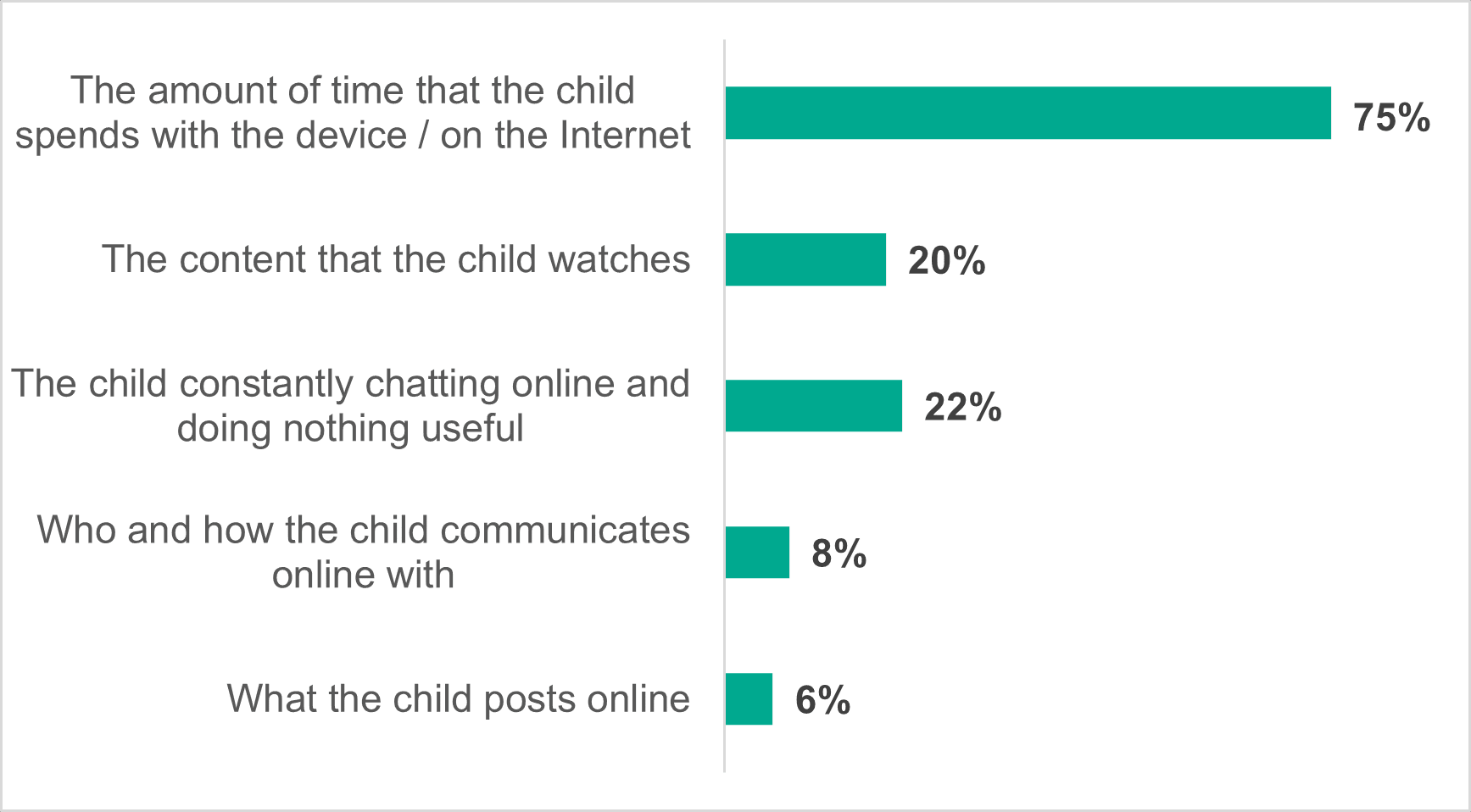According to a Kaspersky survey*, 17% of surveyed parents in South Africa reported having conflicts with their children because of their children’s online life. Yet another 23% state that there are no conflicts regarding this – but only as long as their children’s online activities don’t create real problems. Real problems are not rare though: 18% of surveyed parents admitted that they lost money because of their children’s online behaviour, while 10% of respondents stated that their child’s device was infected with a virus.
Going deeper into the reasons behind the conflicts between parents and their children, most of them emerge because of the amount of time that the child spends with the gadget (in 75% of cases). The content that a child watches is the reason for 20% of conflicts of those surveyed. Parents are also often annoyed by their children constantly chatting online and doing nothing useful – this provokes 22% of arguments.

The reasons of conflicts in families when it comes to a child’s digital life
“Conflicts usually happen because of misunderstanding. For parents, it gets harder and harder to keep up with the pace of the modern evolving digital world, so they are often left out of the picture as they simply do not catch the trends that seem to emerge way too fast. As for children, they tend to move forward with a digital life with limited caution, underestimating the reality of cyber risks and not putting strategies in place to filter the content that they can be exposed to online”, comments Seifallah Jedidi, Head of Consumer Channel in the Middle East, Turkiye and Africa at Kaspersky. “However, it is possible to improve the situation by communicating with your child and building trust and a good relationship about digital lives – parents are to help children develop positive digital behaviour skills and habits, and teach them basic cyber hygiene”, he adds.
In order to eliminate possible conflict situations and to help protect the digital lives and experiences of children, Kaspersky strongly recommends following this advice:
- Learn more on the topic of children’s cybersecurity. Explore modern trends, apps, the way of behaviour that must be adopted in order to safeguard against digital risks (for instance, the basic security rules while on the Internet).
- Communicate with your child and define the borders which are not meant to be crossed. Discuss safe locations with them - both real and webpages.
- Install a reliable security solution such as Kaspersky Safe Kids, which is a helpful tool to protect children against harmful content, excessive screen time and supports in monitoring their digital online activity.
*The survey entitled “Growing Up Online” conducted by Toluna research agency at the request of Kaspersky in 2023-2024. The study sample included 10000 online interviews (5000 parent-child pairs, with children aged 3 to 17 years) in 5 countries: Türkiye, South Africa, Egypt, Saudi Arabia, and the UAE.




